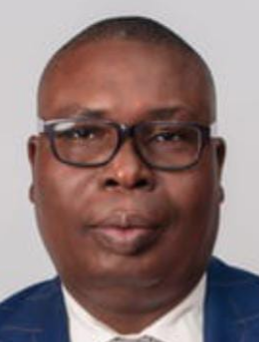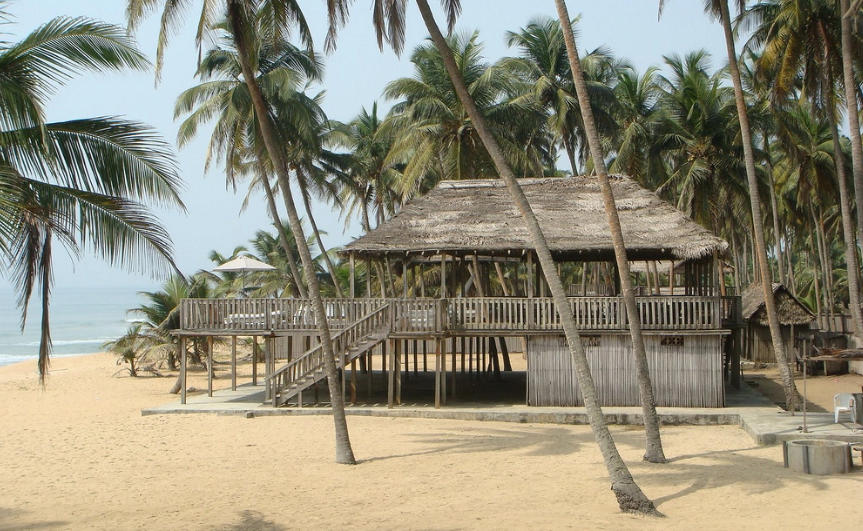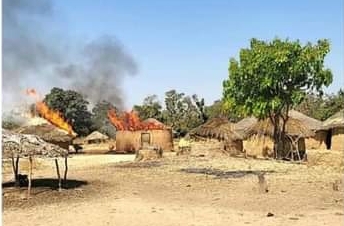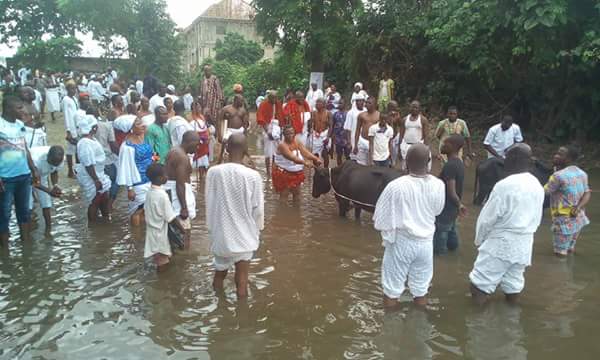Every single month across Nigeria, scores of Nigerians die untimely deaths occasioned by traffic fatalities. As the news of Nigeria’s latest road crash break each day, and the families of the latest unfortunate victims are left to mourn their losses, Nigerians in the surrounding streets, villages, cities and states move on with life praying and hoping that the next crash will be averted by the forces of prayers and faith in God’s protective grace.
Prayers and faith in God are great, but faith doesn’t build forgiving roads that can pardon the errors of reckless drivers. Consequently, road crashes occur regularly and needless deaths continue to occur.
One of the most recent road crash deaths in Nigeria was that of the renowned professor of communication, Lai Oso, who was reported to have died on the evening of Saturday, June 24, in an auto crash in Ijebu axis along Ore-Sagamu expressway.
He was said to be returning home from Delta State University (DELSU) where he was an external examiner at the department of mass communication. The car conveying him was said to have reached the Ijebu axis on the expressway before it plunged into a river.
Advertisement
The dust of the professor’s passage had not settled when another fatal crash occurred on Badagry road in the early hours of Sunday, July 9, 2023.
According to a report by Leadership Newspaper, no fewer than 20 persons said to have chartered an 18-seater bus from the Yaba area of Lagos to attend a group party in the Republic of Benin died in the auto crash in the Badagry area of the state.
“It was gathered that the 18-seater commercial bus fully loaded with passengers including the driver of the bus and his motor boy also died in the tragic accident.”
Advertisement
“The driver of the commercial bus lost control when he saw a truck ahead of him while trying to overtake a tipper truck loaded with sand.”
A day before the Badagry road crash, a road accident in Umunya, Odumodu Junction in Oyi local government area of Anambra state, on Saturday, July 8, 2023, left no fewer than eight passengers dead.
A witness report said: “The accident, which involved two trailers, one Jetta Sienna bus, and one black Toyota car, all of which were severely damaged, was said to have occurred as a result of over-speeding”.
A few days after the Anambra and Badagry crashes, a more terrible crash occurred around Ugwuonyeama by 9th Mile in Enugu state. A whole family perished in that crash and the bloodied lifeless bodies of the victims were strewn everywhere on the road. What a terrible way to die!
Advertisement
The Federal Road Safety Commission (FRSC) recently disclosed that 1,349 people were killed in road accidents between January 1 and April 12, 2023. The commission also said that 2,463 crashes occurred during the period.
According to the FRSC, the crash involved 3,965 vehicles conveying 16,102 people. Out of that number, 1,349 people were killed, while 7,744 got injured. Annually, Nigeria is said to lose between six and 15,000 lives from auto crashes. The statistics depend on the source.
On paper, the data on Nigeria’s annual traffic fatality gives the hope that we are making progress compared to how terrible the situation was over two decades ago. In reality, needless crashes continue to occur on Nigerian roads taking with them brilliant hopes, beautiful dreams, glorious purposes and distinct destinies.
Like the other problem-riddled aspects of our lives, Nigerians continue to grapple with the problem of avoidable deaths on the roadways every day because of the famous ‘Nigerian factor’. It is the Nigerian factor that makes the various agencies of the road safety sector prefer working in silos and promoting operational disconnect that puts Nigeria on the list of some of the nations with the highest number of road deaths globally.
Advertisement
Despite the huge resources poured annually into the various organisations whose activities have a direct or indirect impact on road safety, Nigeria hasn’t done the business of promoting road safety well because of our lack of honesty and understanding of the gravity of the problem. Lack of honesty and appropriate understanding of the magnitude of the quandary caused the following challenges:
- Lack of genuine political will to address the problem of road safety.
- The burden of selfish interests weighing heavily on Nigeria’s road safety interventions and frustrating them.
- Lack of adequate well-trained personnel who know what to do to promote road safety in Nigeria.
- Lack of the right tools for the job. With the right tools, rescue and recovery work will be more efficient and effective.
- Lack of overall unity of purpose in addressing Nigeria’s road safety problem nationwide.
- Disjointed national road safety family and networks. A kingdom divided against itself can’t stand.
- Lack of a robust, practical and productive national road safety plan — not just a document sitting on the shelf because it’s too theoretical.
- Lack of an effective trauma care system that begins with an effective ambulance service, has well-equipped hospitals and is run by compassionate medical personnel who are well cared for
- The absence of appropriate value on the life of Nigerians prevents the nation from knowing the annual cost of road crashes to the GDP. The life of a Briton killed in an auto crash is valued at £1,000,000. There is no value of a Nigerian life.
- Lack of a comprehensive and sensible insurance program for victims of road crashes.
In South Africa, the compensation package for anyone who loses a leg in an auto crash is enough to build a three-bedroom flat and sustain the victim for life. It’s even bigger for anyone who becomes crippled on both legs. In Nigeria, we haven’t even thought this kind of compensation necessary yet.
Advertisement
Until we begin to do things right in Nigeria, we can’t make progress. We are all guilty of not doing things right in one way or another and we are the only ones who can fix the mess that we are. Every Nigerian is a potential victim because we are all travellers.
Osho is a passionate advocate of Nigeria’s emergence as the pride of Africa through quality and innovative leadership. He is a global road safety advocate and co-founder of Safety Beyond Borders & Inspire Nigeria Initiative. He was the candidate of the Social Democratic Party (SDP) for Senate in FCT during the 2023 elections.
Advertisement
Views expressed by contributors are strictly personal and not of TheCable.
Add a comment







